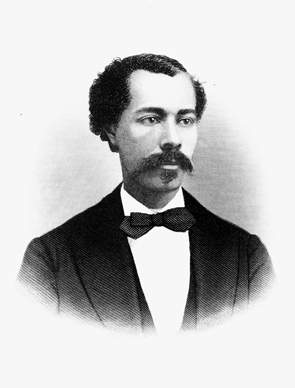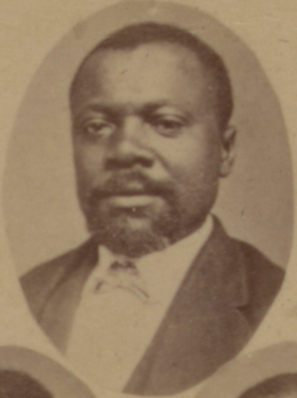Related Research Articles

The Amnesty Act of 1872 is a United States federal law passed on May 22, 1872, which removed most of the penalties imposed on former Confederates by the Fourteenth Amendment, adopted on July 9, 1868. Section 3 of the Fourteenth Amendment prohibits the election or appointment to any federal or state office of any person who had held any of certain offices and then engaged in insurrection, rebellion, or treason. However, the section provided that a two-thirds vote by each House of the Congress could override this limitation. The 1872 act was passed by the 42nd United States Congress and the original restrictive Act was passed by the United States Congress in May 1866.

John Bell Williams was an American Democratic politician who represented Mississippi in the U.S. House of Representatives from 1947 to 1968 and served as the 55th governor of Mississippi from 1968 to 1972.

Charles Willis "Chip" Pickering Jr. is an American businessman and former politician who has been the incumbent chief executive officer of Incompas since 2014.

James Edwin Campbell was an American attorney and Democratic politician from Ohio. He served in the United States House of Representatives from 1884 to 1889 and as the 38th governor of Ohio from 1890 to 1892.

William James Samford was an American attorney and politician who served as the 31st Governor of Alabama and in the United States House of Representatives.

The 1860–61 United States House of Representatives elections were held on various dates in various states between August 6, 1860 and October 24, 1861, before or after the first session of the 37th United States Congress convened on July 4, 1861. The number of House seats initially increased to 239 when California was apportioned an extra one, but these elections were affected by the outbreak of the American Civil War and resulted in over 56 vacancies.

John Roy Lynch was an American writer, attorney, military officer, author, and Republican politician who served as Speaker of the Mississippi House of Representatives and represented Mississippi in the United States House of Representatives.

The 57th United States Congress was a meeting of the legislative branch of the United States federal government, composed of the United States Senate and the United States House of Representatives. It met in Washington, DC from March 4, 1901, to March 4, 1903, during the final six months of William McKinley's presidency, and the first year and a half of the first administration of his successor, Theodore Roosevelt. The apportionment of seats in the House of Representatives was based on the 1890 United States census. Both chambers had a Republican majority.

The 1808–09 United States House of Representatives elections were held on various dates in various states between April 26, 1808 and May 5, 1809. Each state set its own date for its elections to the House of Representatives before the first session of the 11th United States Congress convened on May 22, 1809. They coincided with James Madison being elected as president. Elections were held for all 142 seats, representing 17 states.

The 1806–07 United States House of Representatives elections were held on various dates in various states between April 29, 1806 and August 4, 1807. Each state set its own date for its elections to the House of Representatives before the first session of the 10th United States Congress convened on October 26, 1807. They occurred during Thomas Jefferson's second term. Elections were held for all 142 seats, representing 17 states.

John White Stevenson was the 25th governor of Kentucky and represented the state in both houses of the U.S. Congress. The son of former Speaker of the House and U.S. diplomat Andrew Stevenson, John Stevenson graduated from the University of Virginia in 1832 and studied law under his cousin, future Congressman Willoughby Newton. After briefly practicing law in Mississippi, he relocated to Covington, Kentucky, and was elected county attorney. After serving in the Kentucky legislature, he was chosen as a delegate to the state's third constitutional convention in 1849 and was one of three commissioners charged with revising its code of laws, a task finished in 1854. A Democrat, he was elected to two consecutive terms in the U.S. House of Representatives where he supported several proposed compromises to avert the Civil War and blamed the Radical Republicans for their failure.
More than 1,500 African American officeholders served during the Reconstruction era (1865–1877) and in the years after Reconstruction before white supremacy, disenfranchisement, and the Democratic Party fully reasserted control in Southern states. Historian Canter Brown Jr. noted that in some states, such as Florida, the highest number of African Americans were elected or appointed to offices after the end of Reconstruction in 1877. The following is a partial list of notable African American officeholders from the end of the Civil War until before 1900. Dates listed are the year that a term states or the range of years served if multiple terms.

Charles Coles Diggs Jr. was an American politician from the U.S. state of Michigan who served in the state senate and U.S. House of Representatives. He was the first African American elected to Congress from Michigan.

William James Purman was a U.S. Representative from Florida. A Republican, he also served in the Florida Senate and in the Florida House of Representatives.

James Thomas Elliott was a United States Representative for the state of Arkansas. He held the position for forty-nine days in 1869.

Harrison H. Truhart. was a blacksmith and state legislator in Mississippi serving as a representative from 1872 to 1875. In 1872 he was elected to the Mississippi House of Representatives to represent Holmes County, Mississippi along with Perry Howard and F. Stewart. In 1874, again with Perry Howard and Tenant Weatherly replacing Stewart, he represented Holmes County in the House.

George Caldwell Granberry was a state legislator, postmaster, and teacher in Mississippi. He was a member of the Mississippi House of Representatives during the 1882 session, representing Hinds county. He was a member of the Committee on Propositions and Grievances, a standing committee. While he served in the Legislature, he was also a school teacher. In 1881, he was part of a fusion ticket along with Republican nominees for the Mississippi Legislature J. B. Greaves, Thomas Atkinson, and J. A. Shorter.
James M. Dickson, sometimes written as James M. Dixon, was a minister, farm owner, and state legislator in Mississippi. He was enslaved from birth. He represented Yazoo County in the Mississippi House of Representatives in 1872 and 1873. He also served as a chancery clerk and on the county school board.
John Cocke was a state legislator in Mississippi. He represented Panola County, Mississippi in the Mississippi House of Representatives in 1872 and 1873.
Monroe Bell was a laborer and state legislator who served in the Mississippi House of Representatives from 1872 until 1873.
References
- 1 2 "Charles Reese – Against All Odds".
- ↑ "Mississippi House of Representatives 1872". The Semi-Weekly Clarion. 5 January 1872. p. 4. Retrieved 12 December 2021.

- ↑ Senate, United States Congress (October 31, 1872). "Miscellaneous Documents: 30th Congress, 1st Session - 48th Congress, 2d Session and Special Session" – via Google Books.